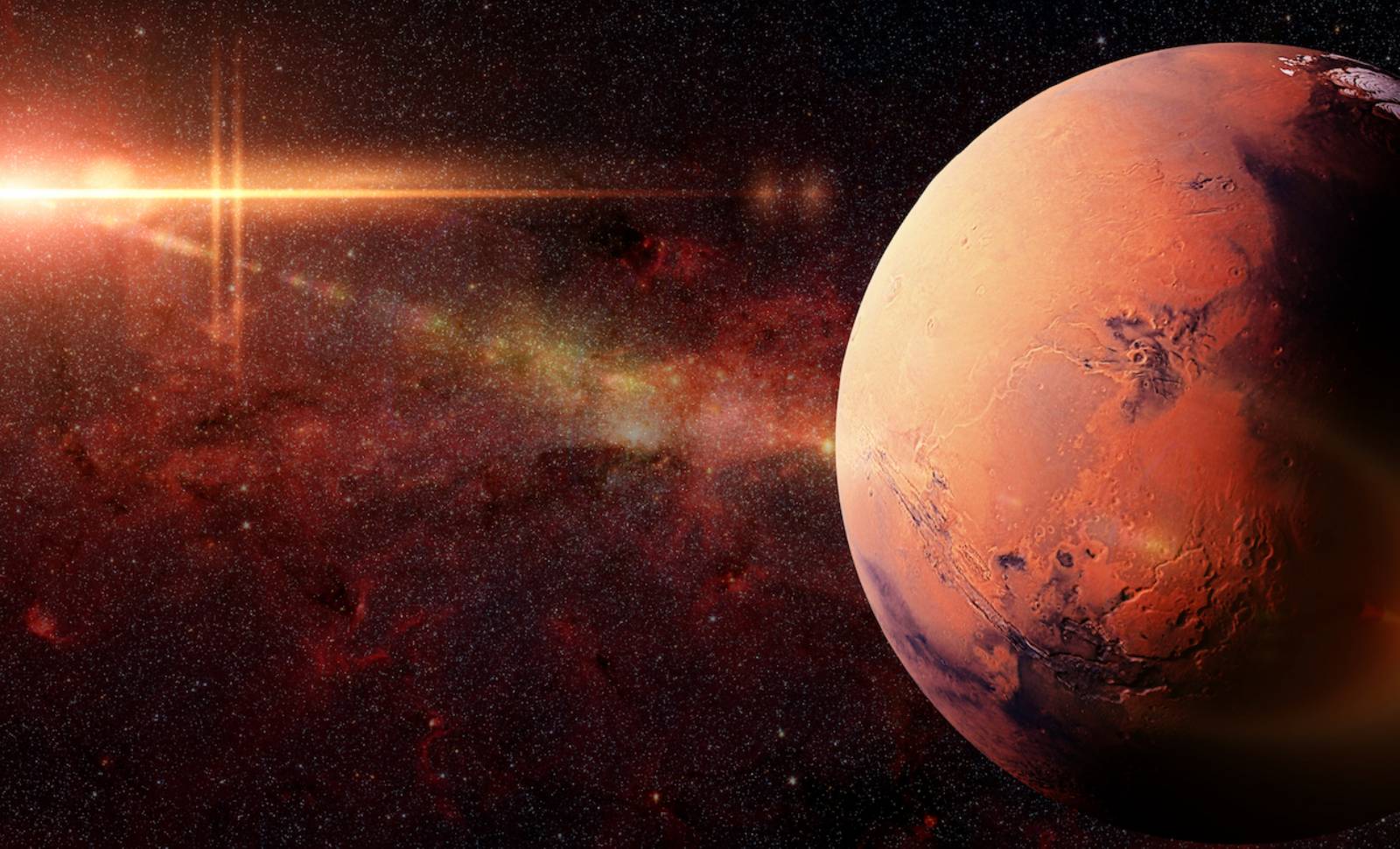Planeta Marte este in centrul atentiei NASA de foarte multa vreme, agentia spatiala americana incercand sa descopere cat mai multe informatii in legatura cu ea, iar acum vorbim despre o descoperire extraordinara. Mai exact, in baza datelor adunate de NASA, cercetatorii au descoperit ca prin analizarea ghetii de pe planeta Marte pot afla informatii despre multiplele ere glaciare prin care a trecut corpul cosmic de-a lungul existentei sale, si e impresionant ca sunt mai multe.
Planeta Marte ar fi trecut prin 6 – 20 de ere glaciare in ultimii 300 – 800 de milioane de ani, astfel ca exista multe zone cu foarte multa gheta care ascund istoria atat de indelungata a acestei planete. Spre deosebire de Pamant, planeta Marte inca mai are ghetari din diversele ere glaciare prin care a trecut, si asta deoarece remperaturile de -62 de grade Celsius nu au permis dezghetarea lor, asa cum s-a intamplat in cazul planetei noastre pe parcursul a mii de ani.
Planeta Marte: Descoperire EXTRAORDINARA ce a Surprins Total
Planeta Marte a fost pana acum in centrul unor teorii care spuneau ca de fapt ar fi existat o singura era glaciara prelungita, si nu mai multe, asa cum spun acum oamenii de stiinta in baza analizelor facute. Peste 60.000 de roci de pe planeta Marte au fost analizate de catre oamenii de stiinta pentru a se ajunge la aceasta concluzie, insa vorbim despre analize facute in baza imaginilor preluate din satelit, si nu despre unele facute pe suprafata, unde oamenii inca nu au ajuns.
“Toate stâncile și nisipul purtate pe acea gheață au rămas la suprafață. Este ca și cum ai pune gheața într-un răcitor sub toate acele sedimente. Am făcut un fel de muncă de teren virtuală, mergând în sus și în jos pe acești ghețari și cartografând bolovanii. De fapt, bolovanii ne spuneau o altă poveste. Nu contează mărimea lor; era modul în care erau grupate sau grupate.”
Planeta Marte ascunde o foarte veche si tumultuoasa istorie in spatele acestor roci si ghetari despre care oamenii de stiinta nu stiu prea multe inca, deci au foarte multe de descoperit in ceea ce le priveste. Asta inseamna ca vom mai afla alte informatii importante cu privire la planeta Marte in viitor, insa dupa ce oamenii vor ajunge pe suprafata, foarte multe alte secrete vor putea fi elucidate, pe masura ce probe de acolo vor ajunge pe Pamant.
Planeta Marte este urmatorul mare obiectiv al celor de la NASA, care vor sa trimita cat mai repede oameni sa o exploreze, insa mai este foarte mult de lucru pana cand se va intampla asta.






















